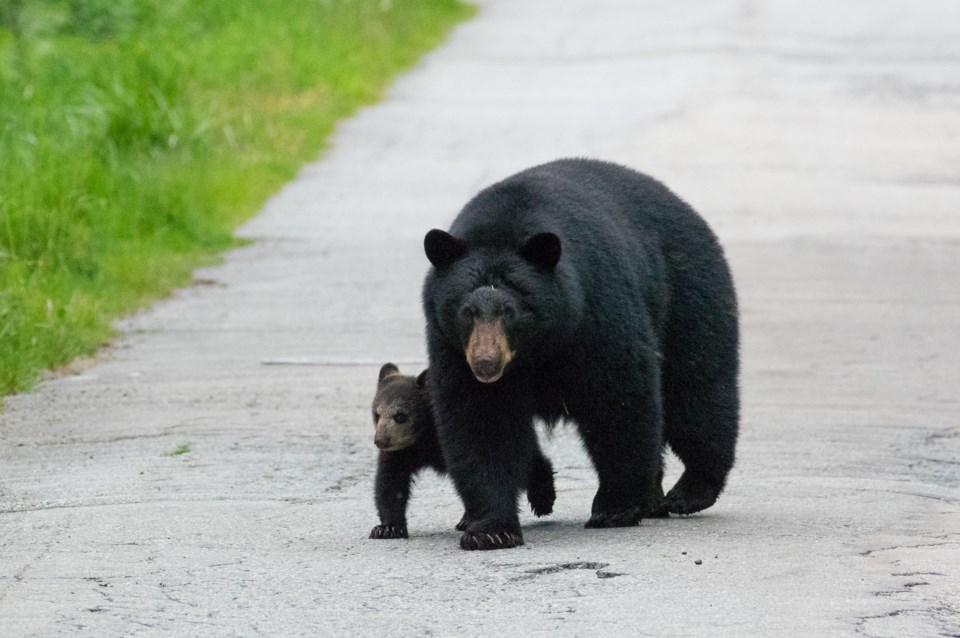With months to go in bear season, three bruins have already been destroyed in the Tri-Cities — one in Coquitlam and two in Anmore — raising fears that more problems could arise if people don’t lock up their household waste.
In all three cases, the bears were causing property damage and relocation was not an option.
“They had hit that threshold and were a safety risk,” said Sgt. Todd Hunter of the BC Conservation Officer Service.
As the weather warms, bears are moving down local mountains in search of food and can be lured into neighbourhoods by the smells of food waste and the promise of high-calorie food.
Bears are hungry after hibernation and are looking to fatten up, Hunter told The Tri-City News.
So far, bear numbers are on par with those in recent years, with Coquitlam posting the highest numbers of complaints, 125 since April 1, compared to 80 for Port Coquitlam, 61 for Port Moody, 13 for Anmore and nine for Belcarra.
But those numbers are small compared to those in Maple Ridge, where four bears have had to be destroyed so far this spring.
Some residents there are calling for a “no-kill zone” but Hunter said the idea is neither practical nor safe.
“We’re not going to adopt a no-kill policy," he said. "Bottom line is people’s safety. We can’t reach a threshold where someone is injured and killed.”
In Maple Ridge, residents who leave attractants out are being fined and even a Maple Ridge school received a Wildlife Protection Order, Hunter said.
And while the Tri-Cities are doing OK compared to previous years, there is room for improvement, with residents urged to take down bird feeders, lock up garbage and remove all fruits and pet food from the outdoors.
“We’re going to be out there in the Tri-Cities pretty soon on another enforcement blitz in order to educate people and to persuade them to become compliant,” Hunter warned.
He’s also concerned people are posting bear concerns to Facebook rather than to the Report All Poachers and Polluters Line (1-877-952-7277), as if keeping information from conservation officers will keep the bruins safe.
They couldn’t be more wrong, said Hunter, who praised people who use Facebook to let their neighbours know what’s happening but expressed concern about withholding important information about conflict bears from conservation officers.
“If you hold onto it, the information may not get out there and somebody may get hurt.”
He pointed to a 2016 attack against a 10-year-old girl on a trail next to the Coquitlam River as an example of what can happen in a conflict situation. The family was returning from a swim and a mother bear, whose cub was with her, attacked, leaving the girl with injuries that needed surgery.
Hunter said had they known the bear was in the area, COs could have closed the trails or put up signs and the family might have gone somewhere else; as well, more enforcement might have kept the bear out of the area.
On the other hand, sharing is caring, Hunter said.
“We totally encourage people telling their neighbours, make sure they watch their yards, make sure they are doing everything they can, [give them a] heads-up that’s the neighbourly thing to do.”



